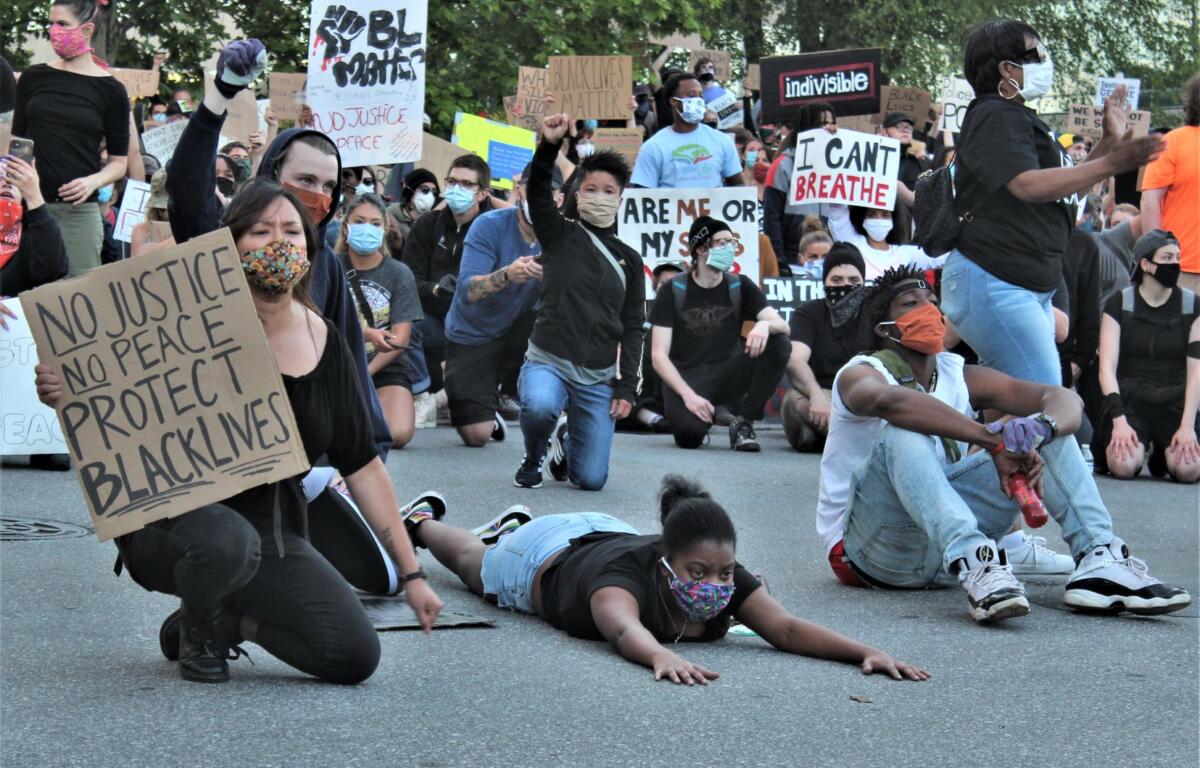ASHEVILLE, N.C. (828newsNOW.com) – Far from any simplistic fix, it will take major policy shifts in criminal justice, economic development, education, health and wellness and housing for Buncombe County and the City of Asheville to improve the racially disparate outcomes for African American residents.
That’s the assessment of a 168-page “Cease Harm Comprehensive Audit” report draft presented in March to both the Buncombe County Commissioners and Asheville City Council.
The report includes 108 detailed recommendations for various levels of government, and discusses how long-lingering effects rooted in slavery and the Jim Crow era still are reflected today in an interwoven collection of systemic problems.
“The impacts of racial harm extend beyond one area of life and instead infiltrate various settings and stages of life that comprise the social determinants of health,” reads part of an executive summary by the draft report’s authors, Dr. Adrian Carter and Carter Development Group. “Health is holistic, including financial, social, environmental and psychological.”
The roots of the audit go back to the social justice movements in the summer of 2020, when tensions were simmering nationwide following high-profile deaths of African Americans at the hands of law enforcement. There were active Black Lives Matter protests on the streets of Asheville.
In July and August of 2020, the City of Asheville and Buncombe County governments each acknowledged historical harms to African American residents by adopting reparations resolutions. Asheville was the second city in the country to do so and Buncombe was the first county.
The two agencies created a Community Reparations Commission in 2022, and it was charged with making short-, medium- and long-term recommendations in criminal justice, economic development, education, health and wellness, and housing. The draft audit report presented this week is a step in that direction.
Five “high-priority inclusive community building recommendations” include: designating traditional African American communities as historic districts; linking school district funding to “racial equity benchmarks;” develop a procurement industry “utilization dashboard” to help ensure Black-owned businesses are included in government contracting; develop a Black Chamber of Commerce; conduct a Buncombe County disparity study.
The report goes out of its way to highlight efforts already underway in all the key topic areas. For example, it discusses inclusive hiring and recruitment efforts. But it also discusses shortcomings in actual outcomes, like a more diverse workforce that still leaves African Americans out of key leadership roles.
In many areas, it cites a significant lack of data tracking to determine whether well-meaning efforts actually are working to eliminate racial disparities.
In criminal justice, it cites over-representation of Black people among those involved in traffic stops and searches, and an increase in arrests involving African Americans.
In education, it cites initiatives that “reflect a commitment to inclusivity and collaboration, ” but says there is a lack of data on learning outcomes to determine whether the efforts are working.
On economic development, it points to persistent challenges for Black-owned businesses and disparities in procurement opportunities, with larger businesses often getting favored despite policies promoting minority business participation.
In health and wellness programs, the audit found a shortage of racial equity training. It also found that essential operational metrics were not being tracked, such as staffing ratios, the cost of services and others, to make sure there is equity in the way services are being delivered.
In housing, the audit finds “a significant gap in Black home ownership,” and in the face of escalating housing costs and shortage of affordable housing, it says there is a “lack of unity” among housing factions within county and city governments, and outside stakeholders, that “hinders the creation of a cohesive affordable housing plan.”
As the authors stated, “This report presents a profound opportunity for the Buncombe County and the City of Asheville governments to engage in transformative initiatives toward equity and justice. The findings are not to blame but serve as an opportunity for inclusive community building.”
Buncombe County Chief Equity and Human Rights Officer Dr. Noreal Armstrong said in a release, “This Is a truly significant juncture in our community’s history. With this audit, the Carter Group has identified real and meaningful ways our local governments have harmed African Americans. Moving forward, we can make a lasting commitment that we will no longer perpetuate these harms so we can build a better Buncombe for all residents.”
The full draft of the audit can be read HERE.
A overview presentation can be seen at this LINK:
This story was updated after it originally was written on March 20, 2024.


